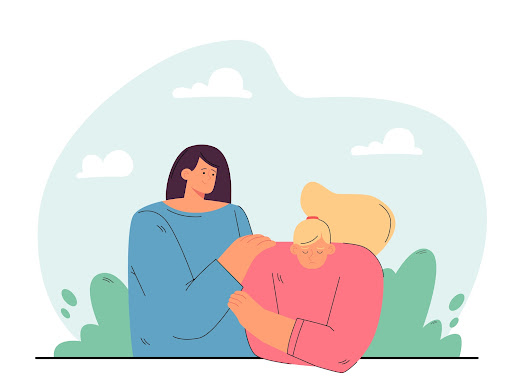Can Anxiety Make You Depressed
Due to the close ties between anxiety and depression, both diseases are frequently treated with the same forms of therapy and drug classes.
Clinical work found that a lot of individuals who are self-diagnosed as sad are anxious. Similar to how many customers who identify as nervous also frequently experience treatment resistant depression Here, we discuss the links between depression and anxiety and how one can cause the other.
Shared Traits and Symptoms of Anxiety and Depression
Nervous Energy
When you're feeling nervous, worried and coiled up too tightly are your main feelings. You have the impression that there is a constant danger and that nothing is safe. However, the irritation brought on by sadness leaves you feeling similarly coiled up. The overlap between the two is frequently hard to separate.
Avoidance or Retreat
People who are anxious tend to withdraw from social situations out of concern that they will be perceived negatively or that some sort of harm would come to them. Depression also causes people to withdraw from society since they can't think of any good reason to deliberately interact with others because they feel so bad about themselves and others.
Negative Thinking
When you're depressed, you always assume the worst. Negative perceptions of the self, the outside environment, and the future are all components of the depressed cognitive triad. You could imagine, for instance, that you won't be liked at a party and won't make any friends. Given that people who are sad don't act as outgoing, engaged, or receptive, there may really be a high possibility that this will happen.
However, if you concentrate on these unfavourable perceptions of other people, you risk misdiagnosing your melancholy and mislabeling yourself as socially anxious.
Behavioral Changes
Additionally, both sadness and anxiety might cause behavioural changes in you.
People who experience anxiety or depression may retreat from social situations for a variety of reasons. Let's assume, though, that your exhaustion and indifference cause you to avoid parties. When you lack social skills, you will eventually increase your risk of getting social anxiety since any worry intensifies when you avoid the feared circumstance.
It's similar to stopping world-expanding activities like driving, flying, or even just leaving the house because of nervousness. Your world will gradually get smaller, and as you consider all the chances you've lost, you can start to feel unhappy.
No Matter the Challenge, Therapy Can Help
Spravato treatment can help you get your life back on track whether you're anxious, depressed, or (sometimes) both. A qualified therapist can assist you in recognising your emotions and working to address the specific problems you are facing.
Getting assistance and support from a qualified expert is nothing to be ashamed of. You and your therapist may decide on the next actions to take to build a life that makes you feel content and joyful once you have determined how your anxiety, depression, or both, are manifesting in your life.



Comments
Post a Comment